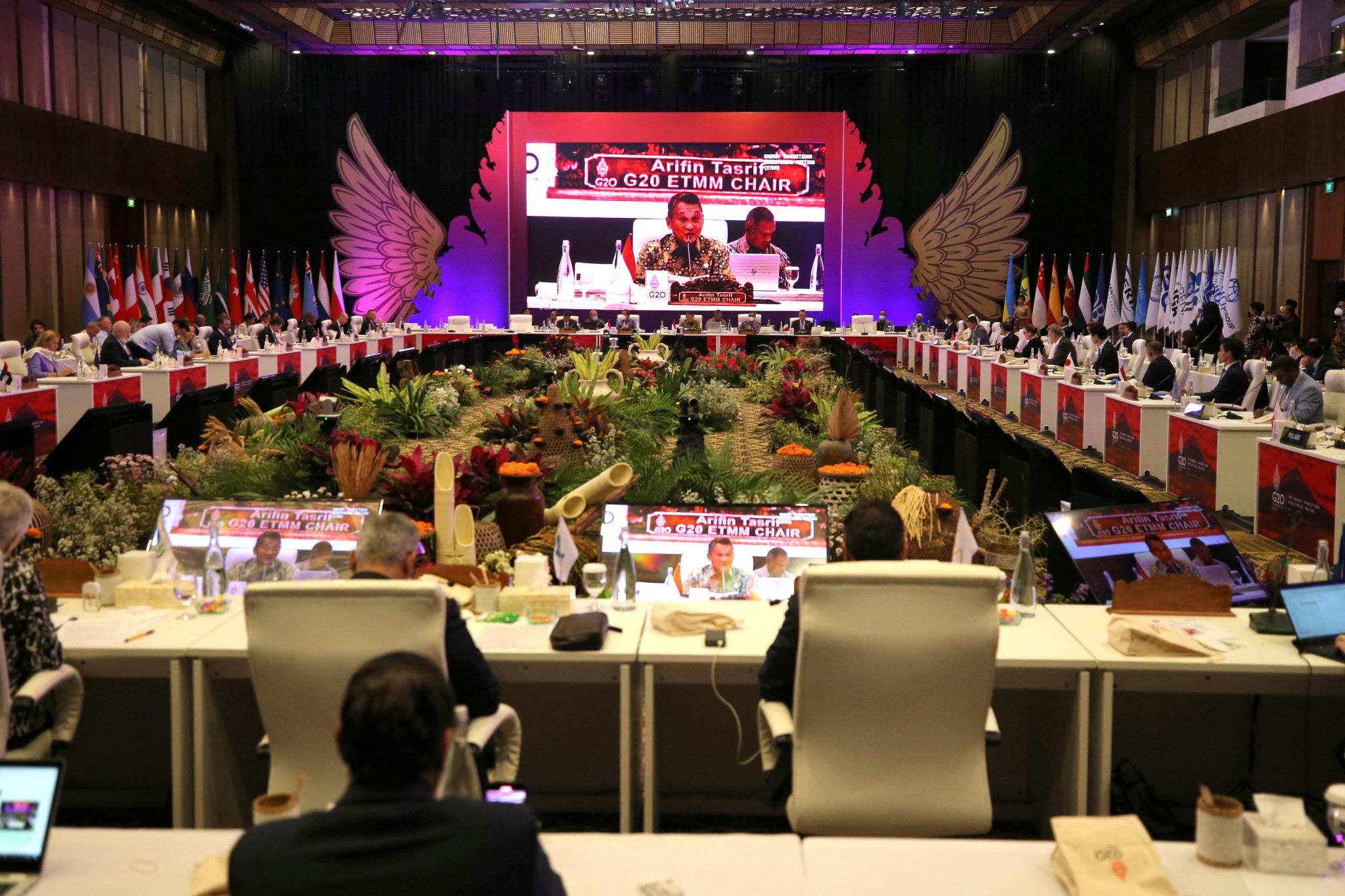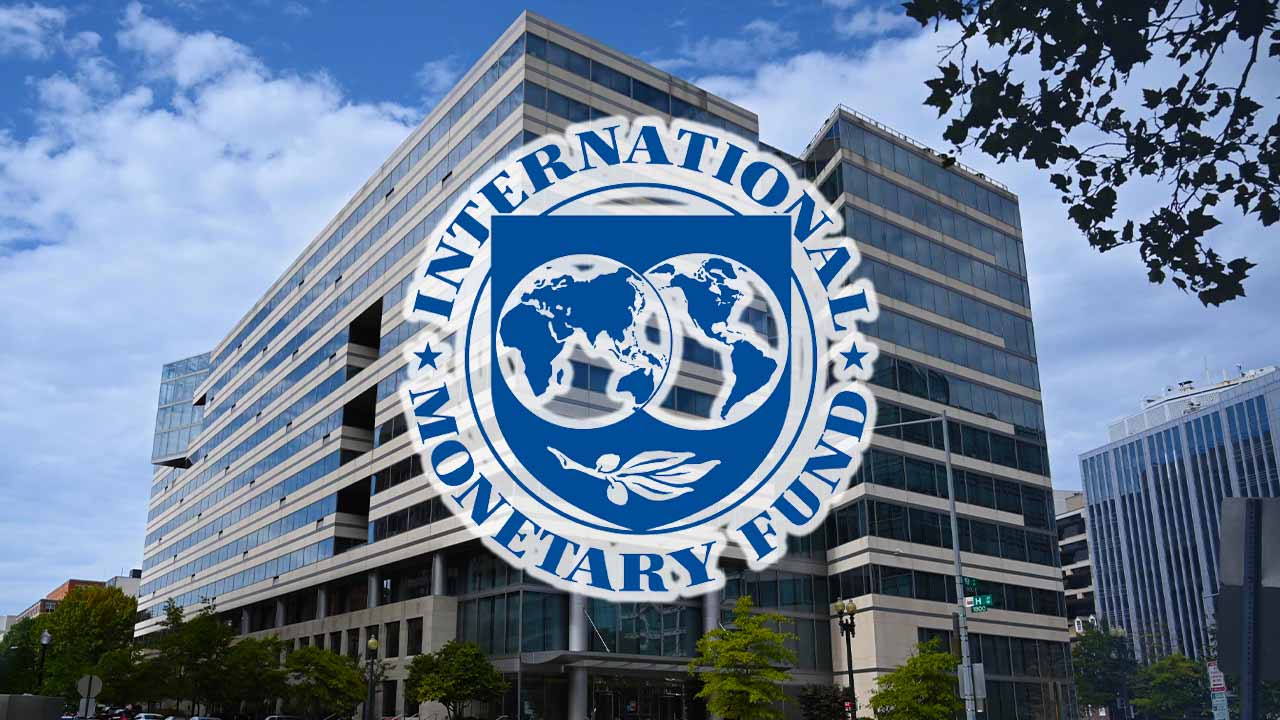The Imperative of Strong G20 Action to Address Weak Global Growth and High Inflation: A Perspective from the IMF

The Imperative of Strong G20 Action to Address Weak Global Growth and High Inflation: A Perspective from the IMF
The IMF predicted in April that global growth would decline to 2.8% in 2023 from 3.4% in 2022. Over 70% of it is anticipated to originate from the Asia-Pacific area.
IMF Managing Director Kristalina Georgieva said on Thursday that the world would be looking for coordinated action to address growing economic fragmentation, sluggish growth, and high inflation before the G20 finance ministers and central bank governors meeting on Monday in Gandhinagar.
Before her journey to India for the G20 summit, Georgieva wrote in a blog about the need for agile multilateral assistance to address shared issues, including debt vulnerabilities, climate change, and the lack of available concessional finance, particularly for those impacted by uncontrollable shocks.

The IMF predicted in April that global growth would decline to 2.8% in 2023 from 3.4% in 2022. Over 70% of it is anticipated to originate from the Asia-Pacific area.
“Yet, recent high frequency indicators paint a mixed picture: weakness in manufacturing contrasts with resilience in services across the G20 countries and strong labour markets in advanced economies,” the official added.
The IMF MD said that while price stability is a top aim, restrictive monetary policy has revealed financial fragilities that must be managed carefully.
“Global headline inflation appears to have reached a high, while core inflation has considerably subsided, especially in India. But inflation remains far over central banks’ objectives in most G20 nations, particularly industrialized economies, she added.
The senior IMF official emphasized the need to maintain the current course concerning monetary policy while closely monitoring financial sector vulnerabilities until inflation is sustainably brought down to goal. She stated that to lessen the possibility of disruptive changes in financial circumstances, “clear central bank communication and financial sector oversight are needed.”

She said, “Temporary and targeted measures may be needed to assist vulnerable people in coping with the immediate cost-of-living crisis.” She said that tightening the purse strings after pandemic-related exceptional support can boost disinflation, develop buffers, and increase debt sustainability.
A $100 billion commitment of special drawing rights (SDRs) to be transferred from more prosperous to poorer nations was also accomplished, the G20 revealed last month. She added that meeting this aim, which the G20 set when the IMF allocated a record $650 billion in SDRs in 2021, will send a powerful message of widespread worldwide unity.
The International Monetary Fund has urged the Group of Twenty (G20), a group of 19 countries and the European Union, to tackle two pressing issues currently affecting the global economy: low growth and high inflation. As global financial crises can have catastrophic effects, the IMF’s call is a clarion demand for practical, cooperative, targeted actions from the world’s leading economies.
As of 2023, the world is experiencing weakened global growth, an issue that has compounded over the past few years. Despite a brief resurgence following the COVID-19 pandemic, the recovery has not been as robust or swift as initially expected. Multiple factors are responsible for this, including pandemic-related disruptions, geopolitical tensions, trade issues, and climate change impacts.

The IMF projects a slowdown in the world economy’s growth, estimating a modest rise of 3.5% in 2023, significantly lower than the 6% increase in 2021. To combat this, the IMF suggests that G20 nations, representing around 80% of the world’s economic output, must take coordinated action to stimulate growth.
The fund proposes increased fiscal and monetary stimulus and structural reforms to improve productivity and labour force participation. Enhancing global trade, addressing income inequalities, and fostering sustainable development also feature prominently in the IMF’s recommendations.
Complicating the task of global recovery is the spectre of rising inflation. Several countries, notably the United States and Germany, have been experiencing inflation rates not seen in decades. As per the IMF’s recent reports, global inflation has reached a 13-year high, primarily driven by supply chain disruptions, energy price hikes, and substantial fiscal and monetary stimuli introduced to combat the economic fallout from the pandemic.

High inflation can lower the purchasing power of money, making it difficult for consumers to afford goods and services. This can create an atmosphere of economic uncertainty. This is particularly problematic for developing economies, where inflation rates directly impact poverty and social stability.
The IMF suggests that the G20 nations adopt coordinated policy measures to manage inflation expectations and keep inflation rates within target levels. These measures include prudent fiscal policies, well-communicated monetary policies, and supply-side interventions to address supply chain disruptions and commodity price increases.
The G20, with its significant influence on global economic policies, can orchestrate international cooperation to counter these challenges. By implementing not just domestically effective but globally beneficial procedures, the G20 can influence worldwide trends in growth and inflation.
Furthermore, the G20 can facilitate dialogue and cooperation among member countries to tackle these problems collaboratively rather than in isolation. The IMF strongly emphasizes the need for policy synchronization among the G20 nations to maximize the effectiveness of their actions.

The IMF’s call for action underscores the urgency and gravity of the current global economic situation. With weakened growth and high inflation threatening global stability, it is incumbent upon the G20 nations to work together to craft effective responses to these challenges.
This involves strategic planning, decisive action, and, most importantly, global cooperation. The IMF’s role in sounding the alarm on these economic challenges serves as a critical reminder of the importance of international financial institutions in maintaining global economic stability. The world now looks to the G20, hoping for solid leadership and practical solutions to navigate these uncertain economic waters.



